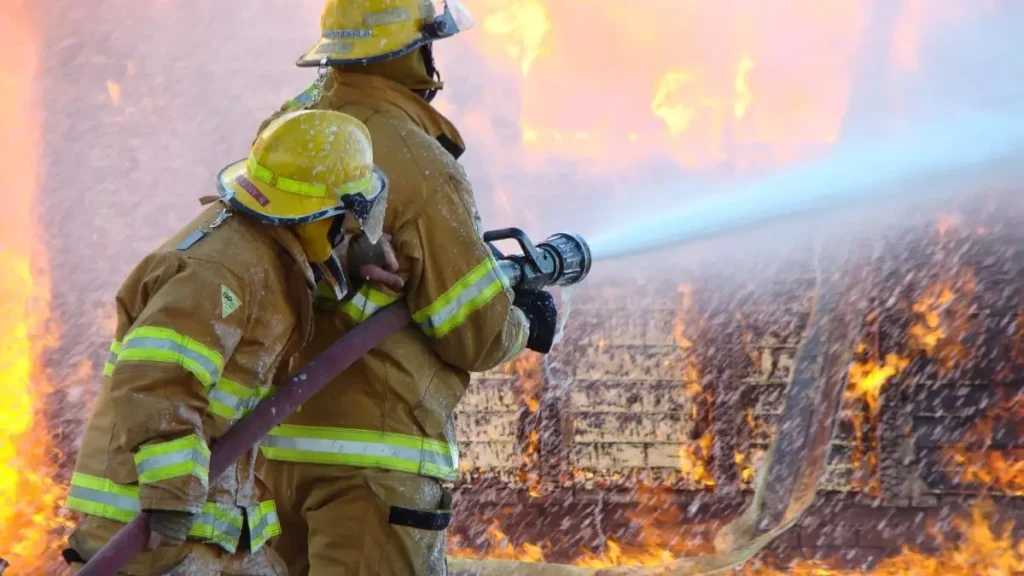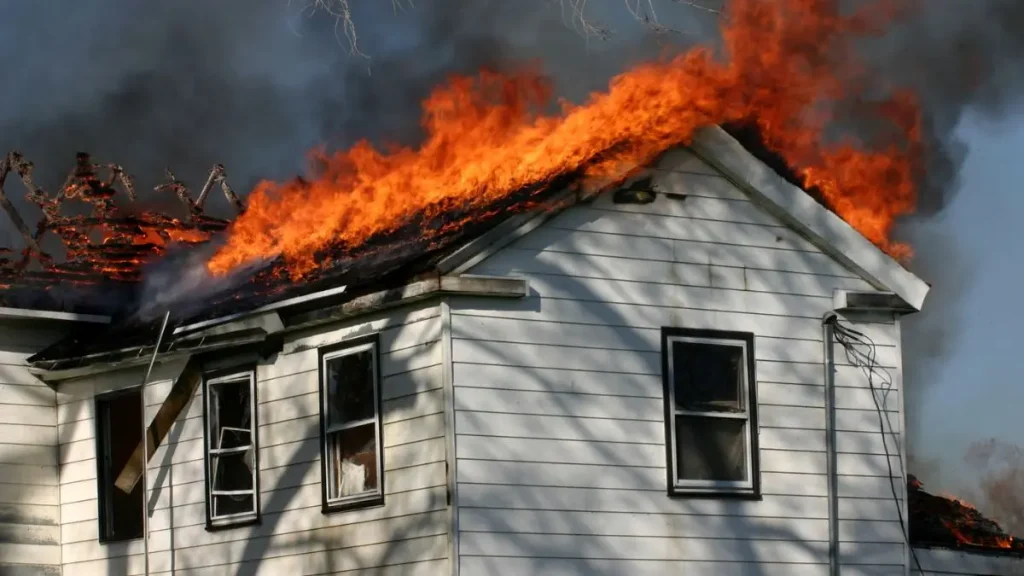Propane Tank Explodes During Mobile Home Fire Near Catawba River
I want to start by painting a clear picture of what happened near the Catawba River on Monday morning. A mobile home caught fire on Pecos Lane, and during the chaos, a propane tank exploded. I know, hearing “propane explosion” immediately raises alarm bells—it did for me too—but thankfully, no one was killed.
One person did receive treatment at the scene for breathing issues, and emergency crews acted fast to keep things under control.
When I read the first reports, the details were sparse. Fire officials haven’t determined exactly what started the fire, and there aren’t many visuals yet. But even with limited information, the incident is a stark reminder of how quickly things can turn dangerous when flammable materials like propane are involved.
If you live near mobile homes or use propane at home, this is a moment to pause and think: Are your safety measures enough? I’ll break down everything we know, what you can do to protect yourself, and why these events matter beyond just the headlines.
Incident Overview

According to WCNC, the fire happened early Monday morning on Pecos Lane near the Catawba River. Emergency crews rushed to the scene, and what started as a mobile home fire quickly escalated when a propane tank exploded.
You can imagine the chaos—the fire department had to act fast to prevent the blaze from spreading to nearby homes or vegetation.
Even though the explosion sounds dramatic, no fatalities were reported. One resident was treated for breathing problems on-site, which reminds us that even “minor” injuries can have serious consequences if smoke inhalation or toxic fumes are involved. Seeing this unfold, it’s clear how quickly a regular morning can turn into a life-threatening situation.
Incidents like this aren’t isolated; we’ve seen other devastating mobile home fires before, such as one in Williamsville that caused significant damage.
Practical takeaway: Always have a fire escape plan, especially if you live in a mobile home or around propane tanks. Knowing where exits and safety equipment are located can save crucial minutes.
Casualties and Injuries
Thankfully, there were no deaths reported in this incident. However, one person was treated at the scene for breathing difficulties, likely caused by smoke or chemical exposure from the propane explosion.
I often tell people that it’s easy to underestimate smoke and gas inhalation. Even if you feel fine after a fire, lingering respiratory irritation can worsen quickly. In this case, first responders were able to identify and treat the person immediately—a crucial step that could prevent long-term health issues.
Fast-moving fires can tragically turn deadly, as was the case in a NYC home blaze where two people lost their lives.
Practical takeaway: If you’re near a fire, evacuate immediately and stay clear of smoke. Even short exposure can be dangerous. Keep masks or cloths handy to cover your mouth if necessary.
Cause of the Fire and Explosion
As of now, fire officials have not determined what caused the mobile home fire. That said, propane explosions often occur when tanks are damaged, improperly stored, or exposed to intense heat.
I know it can feel scary to think about your own home. I always suggest checking propane tanks regularly for leaks, corrosion, or faulty connections. Small oversights can lead to dangerous situations, especially in confined spaces like mobile homes.
Practical takeaway: Treat propane like any other serious hazard—inspect tanks monthly, store them outside when possible, and never leave grills or heaters unattended near flammable materials.
Emergency Response
The fire department’s quick action made a huge difference here. Multiple units responded to contain the blaze and manage the propane explosion. From what WCNC reports, crews focused on keeping the area secure and preventing the fire from spreading to other structures.
I’ve seen firsthand that fast, coordinated emergency response saves lives. It also gives residents time to evacuate safely and limits property damage. Watching local firefighters act calmly under pressure reminds me how vital preparedness is—not just for first responders but for anyone living nearby.
Multiple fire departments responding simultaneously can be critical, similar to the coordinated response seen during a Roscoe house fire.
Practical takeaway: Know your local emergency contacts and evacuation routes. Even having a simple “grab-and-go” bag with essentials can make a big difference in emergencies.
Safety Measures for Homeowners
You might be wondering, “How can I make sure this doesn’t happen to me?” The truth is, propane is safe if handled correctly, but you have to respect it.
Here are some practical tips I recommend:
- Inspect your propane tank and lines monthly for leaks or rust.
- Never store propane tanks inside your mobile home. Keep them outside in a ventilated area.
- Install smoke and carbon monoxide detectors; check batteries regularly.
- Have a fire extinguisher rated for chemical fires within reach.
- Create an evacuation plan and make sure everyone in your household knows it.
For quick tips and updates on home safety incidents like this one, some homeowners use messaging channels to get alerts and checklists—these can help you stay informed in real time.
Practical takeaway: Safety isn’t just about preventing fire—it’s about being ready if something goes wrong. These steps don’t take long but can save lives.
Expert Insights

While we don’t have direct quotes yet from local fire marshals, experts consistently stress that mobile homes are particularly vulnerable to propane fires. Their walls and materials can allow flames to spread faster than traditional homes.
I like to think of it this way: understanding the risks is empowering. When you know how propane behaves under heat, or how smoke moves in confined spaces, you can take small, smart actions that make a real difference.
Practical takeaway: Stay informed and proactive. Even if an incident feels unlikely, preparation turns fear into confidence. Consider scheduling a home safety check with your local fire department—they often offer free inspections.
Community Response
After the explosion, neighbors and local residents quickly rallied to support those affected. I find these moments striking—it’s not just about property or damage, it’s about how people come together when things go wrong. Volunteers helped clear debris, offered temporary shelter, and checked on those evacuated from the area.
It’s easy to focus only on the fire itself, but the human response is equally important. Seeing a community respond with empathy reminds me that safety isn’t just an individual responsibility; it’s a shared one.
Practical takeaway: Keep communication lines open with your neighbors. Building a small safety network can make a huge difference in emergencies. Knowing who can help and who might need help can save time and even lives.
Expert Insights and Fire Safety Lessons
I reached out to fire safety guidelines and past expert commentary to understand why propane explosions in mobile homes can be so dangerous. Experts often highlight three key points:
- Propane tanks can become unstable in heat. A small leak or exposure to flames can trigger a violent reaction.
- Mobile homes have limited fire containment. Lightweight walls allow flames and smoke to spread faster than in traditional homes.
- Preparedness saves lives. Smoke alarms, fire extinguishers, and evacuation drills dramatically reduce risk.
Even without official statements from local authorities yet, these principles apply universally. I always tell friends and family that prevention and readiness aren’t optional—they’re the only way to feel safe.
Practical takeaway: Review your home for fire risks, especially if you use propane. Simple precautions, like keeping tanks outside and maintaining clear escape routes, drastically improve safety.
Key Takeaways and Precautions
Looking at this incident, there are a few clear lessons that anyone can apply immediately.
- Fires can escalate quickly, especially when flammable materials like propane are involved.
- Quick, coordinated emergency response is crucial—but preparation at home is your first line of defense.
- Community support and vigilance make recovery faster and safer for everyone.
I want you to take a moment to consider your own home. Are your propane tanks checked regularly? Do you have smoke detectors that work? Can everyone in your household evacuate quickly if needed? These questions are simple, but answering them today could prevent a tragedy tomorrow.
If you want to read more real-life stories about home fire safety and learn from past incidents, visit our Home Incidents category.
Practical takeaway: Create a safety checklist for your home. Inspect propane tanks, install and test smoke alarms, and practice your evacuation plan. Share it with your family and neighbors—preparedness spreads safety.


